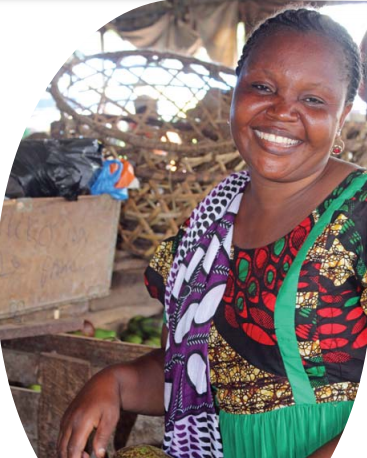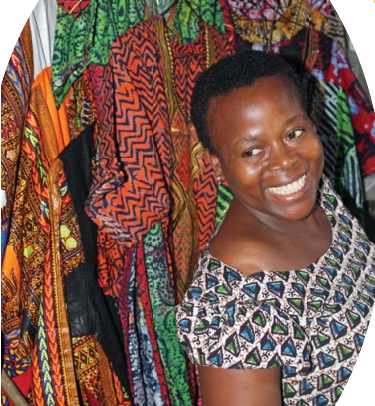History & Situation
Equality for Growth (EfG) is a rights-based NGO seeking to empower Tanzania’s informal sector women. EfG began in 2008, since then it has sought for voice, visibility and rights of women who operate in Tanzania’s informal economy. EfG was established and registered in Tanzania as of 6th August 2008 with registration No. 66935 and later in 2011, the organization acquired a certificate of NGO Compliance No. 00001544. The targeted beneficiaries of EfG’s work are self-employed women workers, in both the formal and informal sectors.
In the interest of transparency to beneficiaries and donors, EfG is making its audited financial statements available for download. Download our 2020 Financial Report here.
Mission
We empower Tanzania’s informal sector women to increase their income and reduce household poverty through access to legal and human rights education, business opportunities, capacity building and active engagement in policy and practice reforms.
Vision
We envision vibrantly and economically empowered informal sector women. We believe working spaces can be liberated from gender, legal and economic barriers and informal sector women can operate in the absence of all forms of exploitation.
Some of our success stories
Mariam

Mariam is a single mother of four. Three years ago, her husband left her for another woman. Since being separated, he had refused to pay child support, leaving Mariam to care for her children on her own. After learning about EfG’s legal services, Mariam reached out for guidance regarding her situation. She was provided with knowledge on matrimonial laws and her rights, support and access to a pro-bono lawyer. Her case went to court; ruling in her favour her ex-husband is now obligated to provide financial support. The family property and farmland was also successfully allocated to her children. Following this success, Mariam gained confidence and her burden of care was lifted allowing her the opportunity to join a VICOBA group where she served as a leader and works to spread the knowledge she gained from EfG to fellow market traders. Mariam also contested for a market leadership position and played a prominent role in drafting a new gender-inclusive market constitution.
Asha

Asha is a widowed mother of four. During her marriage, she managed to obtain a number of properties in Dar es salaam, including a land plot. After her husband’s death, his relatives denied her the right to inherit the property, arguing she had no claim. Asha received human rights education from EfG and learned that traditional marriages such as hers are legally recognized and that her children had the right to inherit their late father’s property. Because of this knowledge, she started to claim her rights and those of her children to inherit the property.
“The education on marriage and inheritance that I obtained from EfG has helped me to get back my land that was lost for seven (7) years.”
Asha stated in an interview
